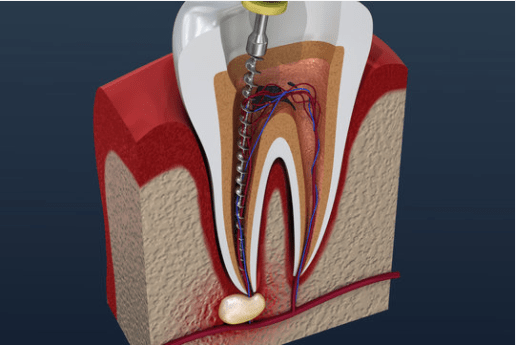
Root Canals
The human tooth is the hardest substance in the body. In fact, it is harder than steel; however, it is more brittle than the latter. Due to some factors such as poor oral hygiene, illness and others, your teeth can weaken over time. Weak teeth can bring about many oral and dental issues such as tooth cavities, infection, and gum diseases.
When the bacteria in the mouth multiplies due to poor oral hygiene and an unhealthy diet, plaque can start forming on your teeth or under the gums. These plaques contain bacteria that eat away your tooth enamel. If left untreated, the bacteria can reach the nerves of your teeth, causing inflammation and infection. To treat this infection, you may need to undergo a root canal procedure.
What is a root canal?
A root canal is a dental treatment that aims to eliminate the bacteria from the infected tooth pulp and root. A root canal is a popular and most common endodontic procedure in the US, with about 15 million root canal procedures done every year.
If the pulp of your tooth is damaged with a cavity, repeated dental procedures, or from a crack, and you don’t want to resort to tooth extraction, then you may be qualified to get a root canal treatment. Root canal procedure will help you save your natural tooth and provide you several advantages such as removing tooth pain, treating tooth sensitivity, improving chewing and bite force, and many others.
How is a root canal performed?
A root canal dental treatment is performed by a general dentist or an endodontist in a dental clinic. During the procedure, your doctor will apply a numbing gel on the gum of the affected tooth before local anesthesia will be injected on the gums. This will make the procedure more comfortable and less painful for you.
Once the anesthesia has taken effect, your doctor will make a small incision on the tooth until the infected pulp is exposed. Using files, the doctor will then remove the infected pulp and clean its pathways or the canals
After cleaning, a topical antibiotic will be applied on the area to remove infection and prevent it from recurring. After this, your doctor will seal it with a material called gutta-percha. This will ensure that the canals will not get damaged from your saliva. Soft temporary material will be applied on top of the tooth too.
What to expect after a root canal treatment?
While others can go back right to their daily activities after the treatment, some may need to take a rest at least until the numbing disappears. On the initial days after the procedure, you may also experience teeth sensitivity, swelling, uneven bite, and pain. But it will eventually go away. Your doctor may prescribe you with over-the-counter anti-inflammatory and pain relief medications.
Root canal dental treatment offers 97% success rate. Aside from that, most root canal treatments can even last a lifetime especially if you observe good oral hygiene and maintain routine dental checkup.

